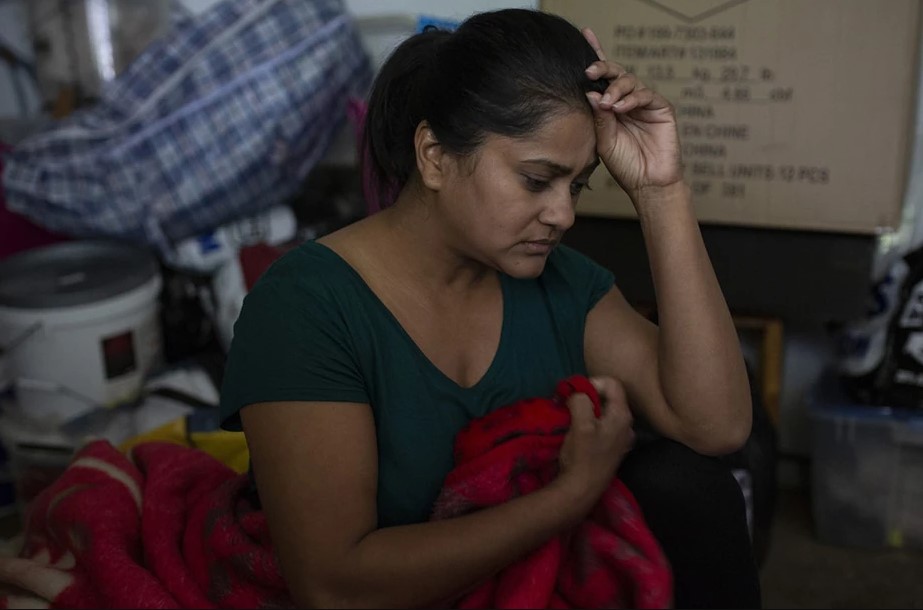
International Day for the Elimination of Violence against Women: the activities of the British Red Cross
Today, 25 November, is the International Day for the Elimination of Violence against Women. It’s a day to raise awareness of gender-based violence, helping to reduce stigma about the subject and showing solidarity with survivors
What is violence against women?
Violence against women takes different forms and can be complex. It can include sexual violence, domestic violence, human trafficking (like slavery and sexual exploitation), harmful practices like forced and early marriage, early pregnancy, female genital mutilation (FGM), so-called ‘honour’ based violence and violence from an intimate partner.
There is often a fear of stigmatisation, and a fear of rejection and retaliation by a woman or girl’s family and community, if she reports what has happened to her.
One in three women throughout the world will experience physical and/or sexual violence by a partner, or sexual violence from a non-partner.
These things can happen to all women, but some groups of women are more at risk.
These include:
- Women on the move, at all stages of their journey. This includes before fleeing their home country, during the journey and in the camps or places people might stay, including here in the UK
- women in conflict – sexual violence including using rape as a weapon of war and sexual slavery, or post-conflict situations and other emergencies including natural disasters and epidemics
Sadly, violence against women and girls has got worse during the Covid-19 pandemic, including domestic violence and other forms of gender-based violence, like early marriage, survival sex and sexual exploitation (negative coping mechanisms adopted by families and women and girls to cope with loss of livelihoods and the economic crisis caused by the pandemic.
ONE IN THREE WOMEN WILL EXPERIENCE PHYSICAL AND/OR SEXUAL VIOLENCE
What is the British Red Cross doing to help survivors of gender-based violence?
“We support survivors by providing practical and emotional support (like psychosocial support) or providing safe spaces and dignity kits.
We provide cash and voucher assistance to survivors of gender-based violence to help them access the services they need and provide work and job opportunities to help their recovery and reintegration in their community.
We work with women and girls at risk of gender-based violence to support their economic autonomy and access to food, cash and job opportunities to mitigate that risk of violence taking place.
We also work with communities including women’s groups, men and boys and community leaders to help reduce stigma and prevent violence against women and girls.
We advocate on behalf of women in the UK asylum system. Our work supports women and girls both in the UK and overseas including in Sudan, Nigeria, Niger, Central African Republic, Sierra Leone, The Democratic Republic of the Congo, Iraq, Libya and in the UK.
How are we helping in Eastern Sudan?
In Eastern Sudan we are supporting women and girls on the move in partnership with the Danish Red Cross and Sudanese Red Crescent Society.
Together with generous support from players of People’s Postcode Lottery we are:
- providing child-friendly spaces and safe places for women and girls in reception centres and refugee camps to identify and safely refer people who need support
- providing psychosocial support
- providing accommodation and basic needs to survivors of sexual and gender-based violence and human trafficking in a safe house where they can learn skills, seek advice, recuperate and heal from their trauma
- working closely with local communities to help reduce stigma about trafficking and sexual and gender-based violence and mitigate these risks, which are sensitive topics in Sudan.
Read more about the safe house in Eastern Sudan here, and meet the women of the Sudanese Red Crescent here.
Violence against women: How are we helping in the UK?
We are supporting asylum-seeking women and girls by:
- Delivering training on sexual and gender-based violence
- developing guidance for working with women who are at risk, and designing and running workshops on rights and support for migration women
- supporting teams to provide help that is gender sensitive taking in to account that some women may have trauma as a result of violence
- advocating on behalf of women in the asylum system, and helping to raise awareness of the issue to make it mainstream.
Read Also:
Emergency Live Even More…Live: Download The New Free App Of Your Newspaper For IOS And Android
Gender-Based Violence In Emergencies: UNICEF Actions
Sexual Harassment In Medical Profession: Legal And Ethical Responsibilities
Bullying And Harassment At Work – One-Third Of Doctors Feel Threaten
#ORANGETHEWORLD – International Day For The Elimination Of Violence Against Women And Girls
Shaken Baby Syndrome: The Very Serious Damage Of Violence On The Newborn Child
Violence Against EMS Providers – Paramedics Assaulted On A Stabbing Scenario
November 25, Violence Against Women Day: The 5 Signs Not To Underestimate In A Relationship


